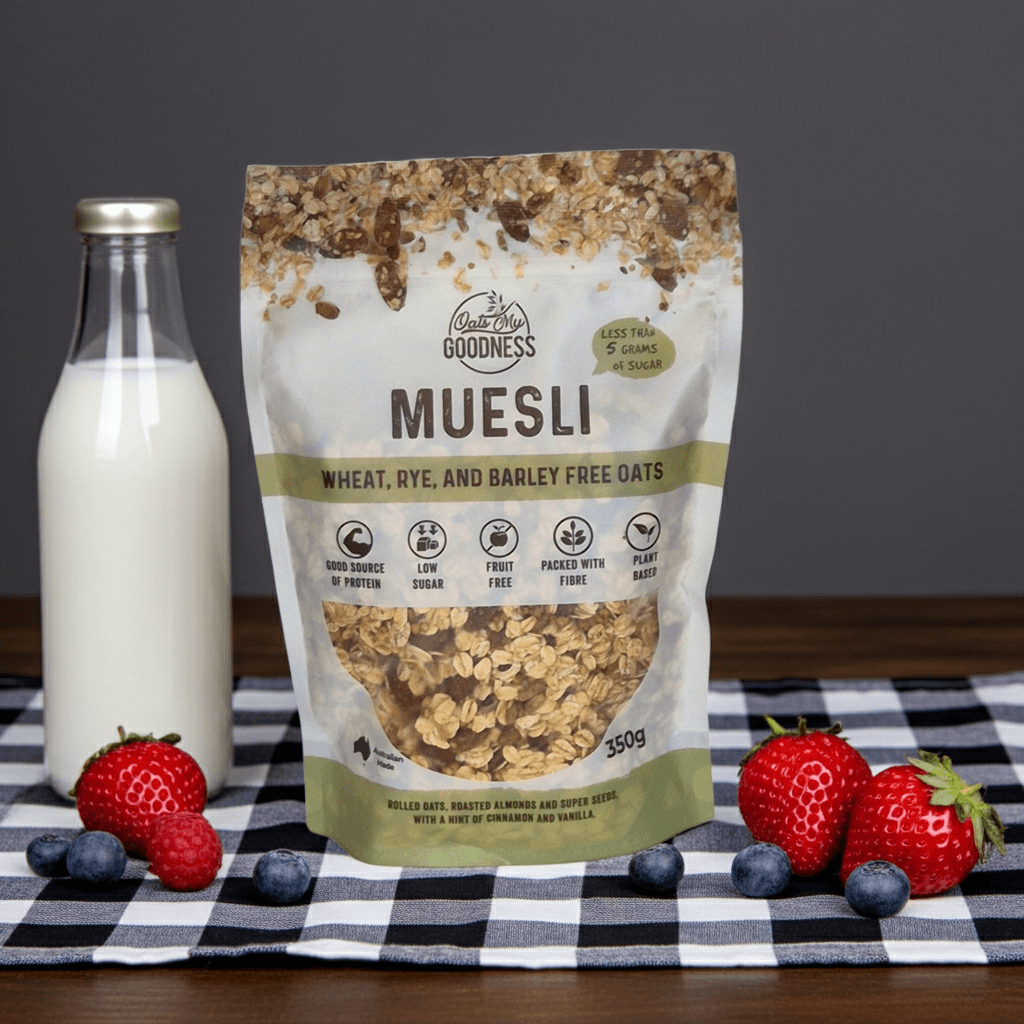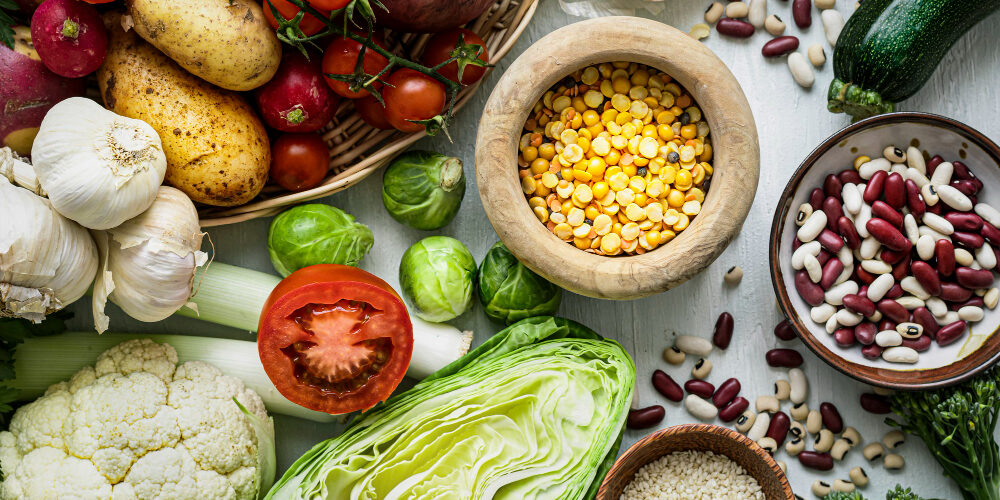When it comes to making your lifestyle healthier day by day, changing your daily meals to whole foods is the best solution. Not only are they healthy foods because they retain their natural goodness through minimal processing, but they are also very nourishing for the body, rich in many nutrients. Consuming them in the long term brings many benefits not only for your body but also for the environment. Learn about some of the benefits of eating whole foods that you need to know!
What Does Whole Foods Mean?

Whole foods mean keeping foods as close to their natural states and minimising processing. Some examples of whole foods include fruits, vegetables, grains, and proteins that are not chemically altered. Moreover, if a food contains clean ingredients with familiar names, it is most likely a whole food.
On the other hand, if you find foods with ingredient labels that contain unfamiliar and complicated names, they could be processed foods because they add other ingredients that are less healthy, such as chemicals, preservatives, coloring, and so on. Therefore, whole foods are a much more nutritious and safer option than processed foods.
What Are Some Examples of Whole Foods?

Whole foods are often associated with plant-based foods, although not all whole foods are plant-based. In addition to fruits and vegetables (apples, bananas, carrots, and spinach), whole grains (brown rice, quinoa, and oats that are unrefined and full of fibre), nuts and seeds (almonds, walnuts, chia seeds, and flaxseeds), whole foods also include some lean proteins such as fish, eggs, lentils, and legumes.
However, these ingredients are not associated with chemicals, refined sugar, or other ingredients that are unsafe for long-term consumption, unlike those in processed foods. Incorporating these whole foods into your meals is a great way to ensure you nourish your body with high-quality ingredients.
Key Benefits of Eating Whole Foods

Reduced Risk of Chronic Diseases
Whole foods play a significant role in lowering the risk of chronic diseases. Because they are rich in antioxidants, fibre, and healthy fats, they help reduce inflammation and promote heart health. Studies have shown that people who eat more whole foods have a lower risk of developing diseases like diabetes, heart disease, and even certain cancers. These foods also help regulate blood sugar levels, keeping you feeling good for longer.
Improved Nutritional Intake
Eating whole foods means you’re getting a variety of nutrients in their most natural forms. Whole foods are nutrient-dense, meaning they pack more vitamins and minerals per serving than processed alternatives. For example, fruits and vegetables are rich in antioxidants that support immune function, while whole grains provide sustained energy without causing blood sugar spikes.
Better Fullness and Weight Management
Whole foods are naturally filling. Due to their high fibre content, they help keep you satisfied for longer, reducing the temptation to snack on unhealthy options throughout the day. Foods like whole grains, beans, and vegetables are great at curbing hunger, which can make managing your weight easier. Thus, since whole foods are typically lower in calories and higher in nutrients, they support healthy weight management without compromising on taste or satisfaction.
Reduced cancer risk
A diet rich in whole foods has been linked to a lower risk of developing cancer. This is due to the presence of powerful antioxidants and phytochemicals found in fruits, vegetables, and whole grains. These compounds help neutralise harmful free radicals in the body, reducing oxidative stress and lowering the chance of cell damage. Incorporating foods like berries, leafy greens, and cruciferous vegetables into your diet is a natural way to fight off cancerous cells and maintain overall health.
Diabetes management
Whole foods are also a key player in managing diabetes. They help regulate blood sugar levels due to their high fibre content, which slows the absorption of sugar into the bloodstream. This is especially important for people with type 2 diabetes, as managing blood sugar is crucial. Foods like oats, legumes, and non-starchy vegetables help maintain steady energy levels throughout the day, making them perfect for anyone looking to keep their diabetes in check.
Whole Foods vs Processed Foods
When comparing whole foods vs processed foods, the differences are clear. Processed foods often contain refined sugars, unhealthy fats, and chemicals that can harm the body over time. They may be convenient, but they come at a nutritional cost.
On the other hand, whole foods offer natural nutrition, with no artificial additives or preservatives. They are less likely to contribute to weight gain, chronic inflammation, or nutrient deficiencies. While processed foods may be easier to grab on the go, whole foods give you more energy and long-term health benefits.
How to Add More Whole Foods to Your Day
Try to plan ahead
Planning your meals ahead of time can help you stay on track with eating whole foods. By preparing your grocery list and meal prep on the weekend, you’ll ensure that you always have fresh produce, whole grains, and lean proteins on hand. Having your meals planned out also saves time and helps you avoid reaching for unhealthy processed snacks when you’re hungry.
Read the label
When you’re shopping for packaged foods, always read the label. Look for options that are as close to their natural state as possible. If you see long lists of unpronounceable ingredients, chances are, it’s highly processed. Instead, choose products with simple, whole ingredients, like oats, nuts, and natural sweeteners such as honey or maple syrup, like Oats My Goodness products.
Consider batch cooking/pre-made snacks
Batch cooking is a great way to stay on top of your healthy eating goals. Prepare a big batch of quinoa, roasted vegetables, or grilled chicken and store it in the fridge for easy access throughout the week. You can also prepare healthy snacks, such as homemade energy bars or roasted nuts, to keep you fueled throughout the day.
Don’t forget your seeds and nuts
Seeds and nuts are often overlooked but are packed with nutrients. They’re easy to add to smoothies, salads, or even as a snack on their own. Chia seeds, flaxseeds, almonds, and walnuts provide healthy fats, fibre, and protein. Plus, they’re portable and easy to snack on when you’re on the go!
Go brown where possible
When choosing grains, always opt for the brown or whole version. Brown rice, whole wheat bread, and whole grain pasta are rich in fibre and nutrients, unlike their refined counterparts. These whole grains not only improve digestion but also provide a steady source of energy throughout the day.
Frequently Asked Questions
What happens to your body when you start eating only whole foods?
Switching to a whole foods diet can have a significant impact on your health. You may notice increased energy levels, improved digestion, and clearer skin. Your body will start to function better as it receives the nutrients it needs from fresh, unprocessed ingredients.
Is Greek yogurt considered a whole food?
Yes, Greek yogurt is considered a whole food, especially when it’s made with minimal processing and no added sugars. It’s a great source of protein, probiotics, and calcium. Just make sure to choose plain, unsweetened varieties for maximum health benefits.
Is peanut butter considered a whole food?
Peanut butter can be considered a whole food, as long as it’s made with just peanuts and perhaps a little salt. Many store-bought peanut butters contain added sugars and hydrogenated oils, which undermine their health benefits. Always check the label and opt for natural peanut butter to get the full nutritional benefits.
Conclusion
Eating whole foods is one of the simplest ways to enhance your health. By prioritising nutrient-dense, minimally processed ingredients, you’ll provide your body with the essential fuel it needs to thrive. If you’re considering a transition to a healthier, whole-foods product, Oats My Goodness is here to assist you. With our variety of nutritious, plant-based oats, you can enjoy all the benefits of whole foods without any hassle.
Visit Oats My Goodness today and start nourishing your body with the goodness it deserves!








